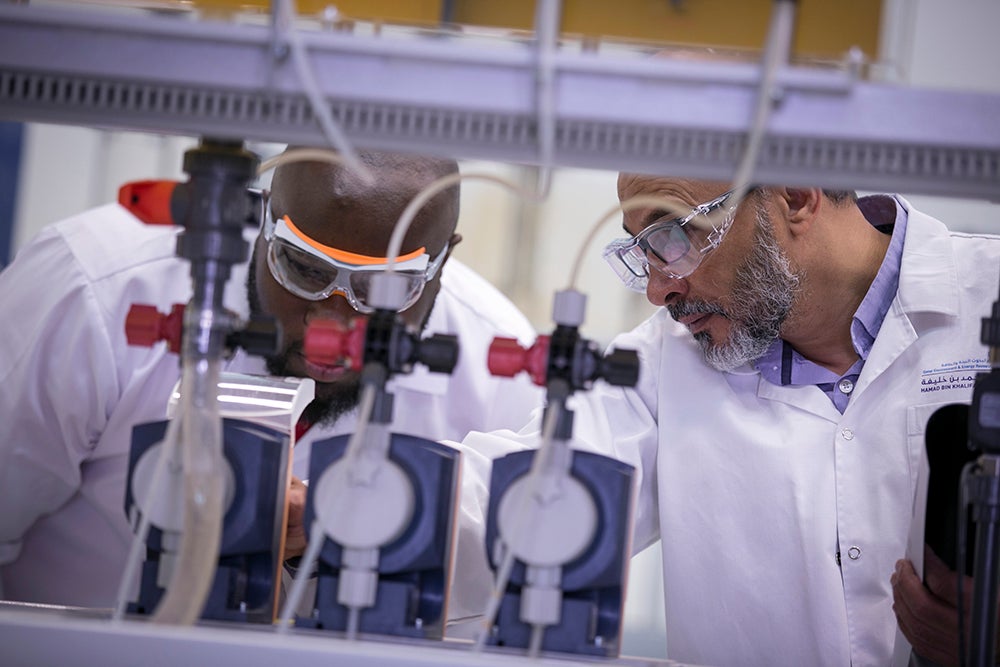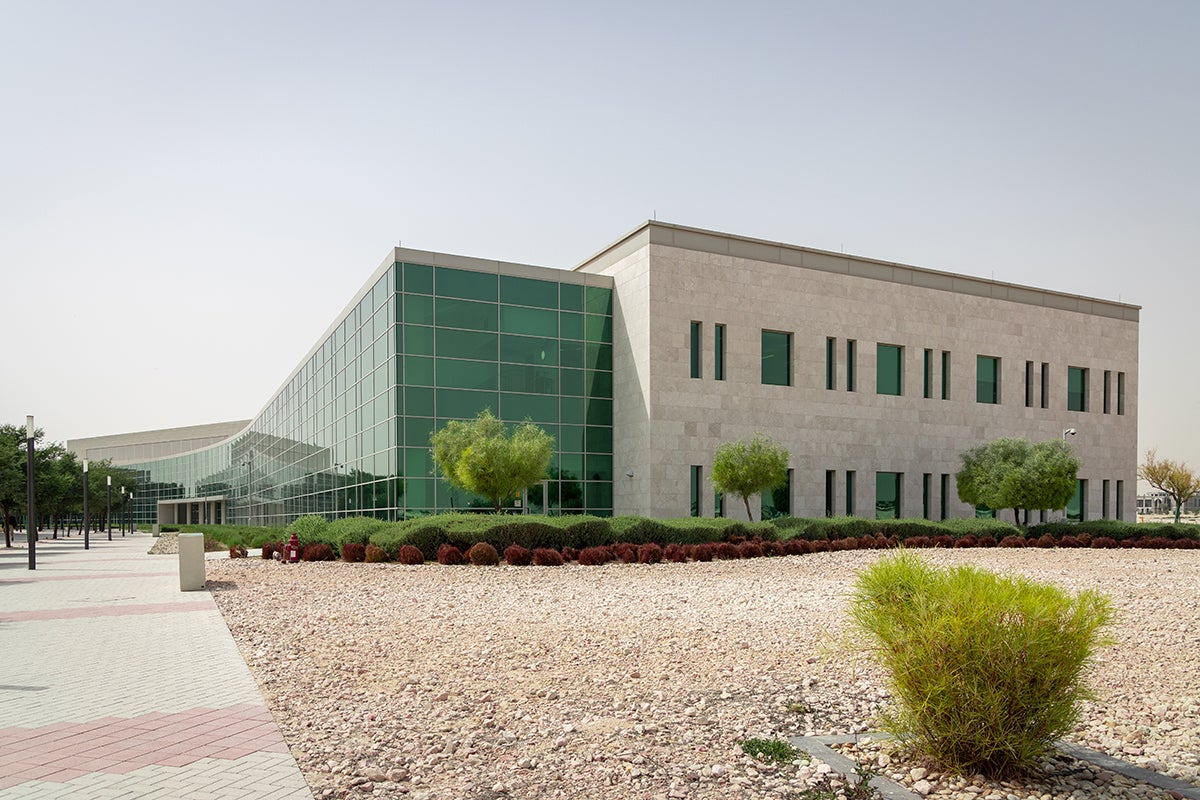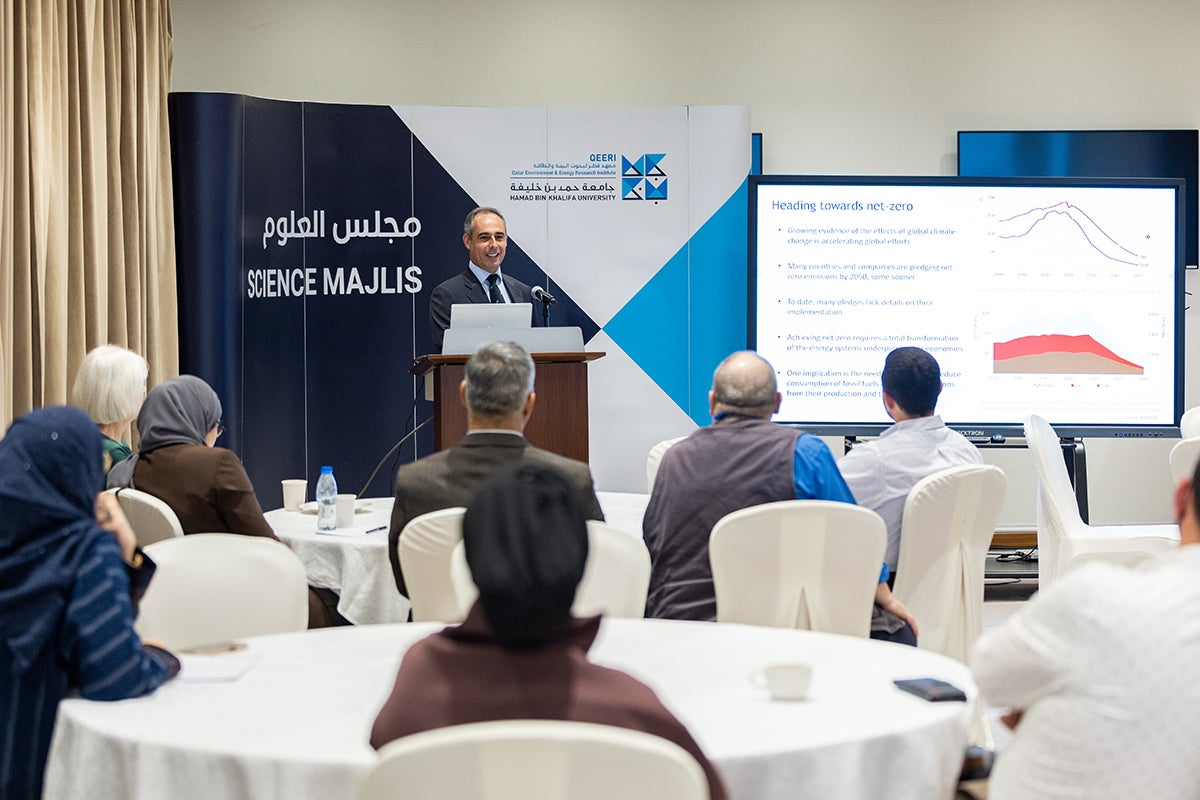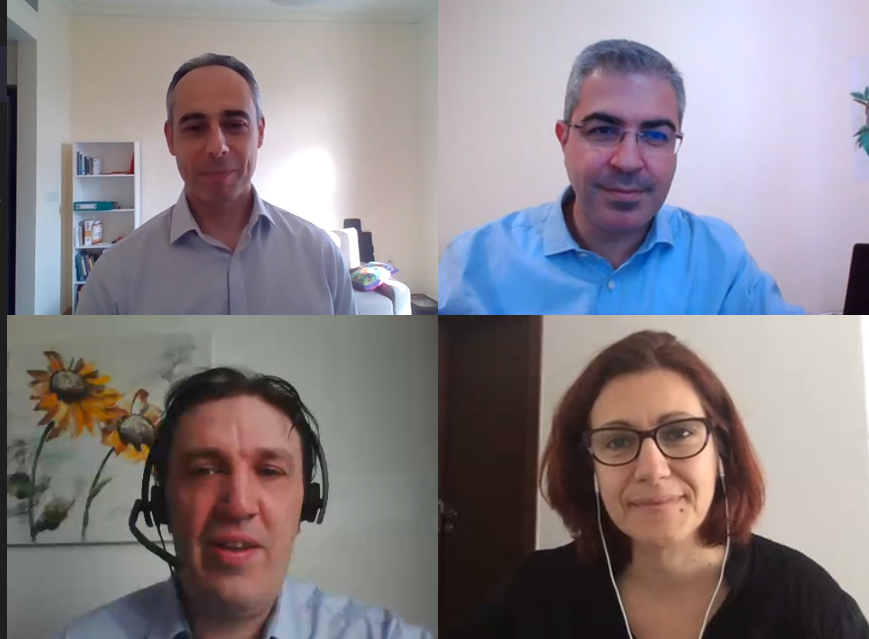
Helping the Nation Harness its Sustainable Energy Resources: A Decade of Qatar Environment and Energy Research Institute
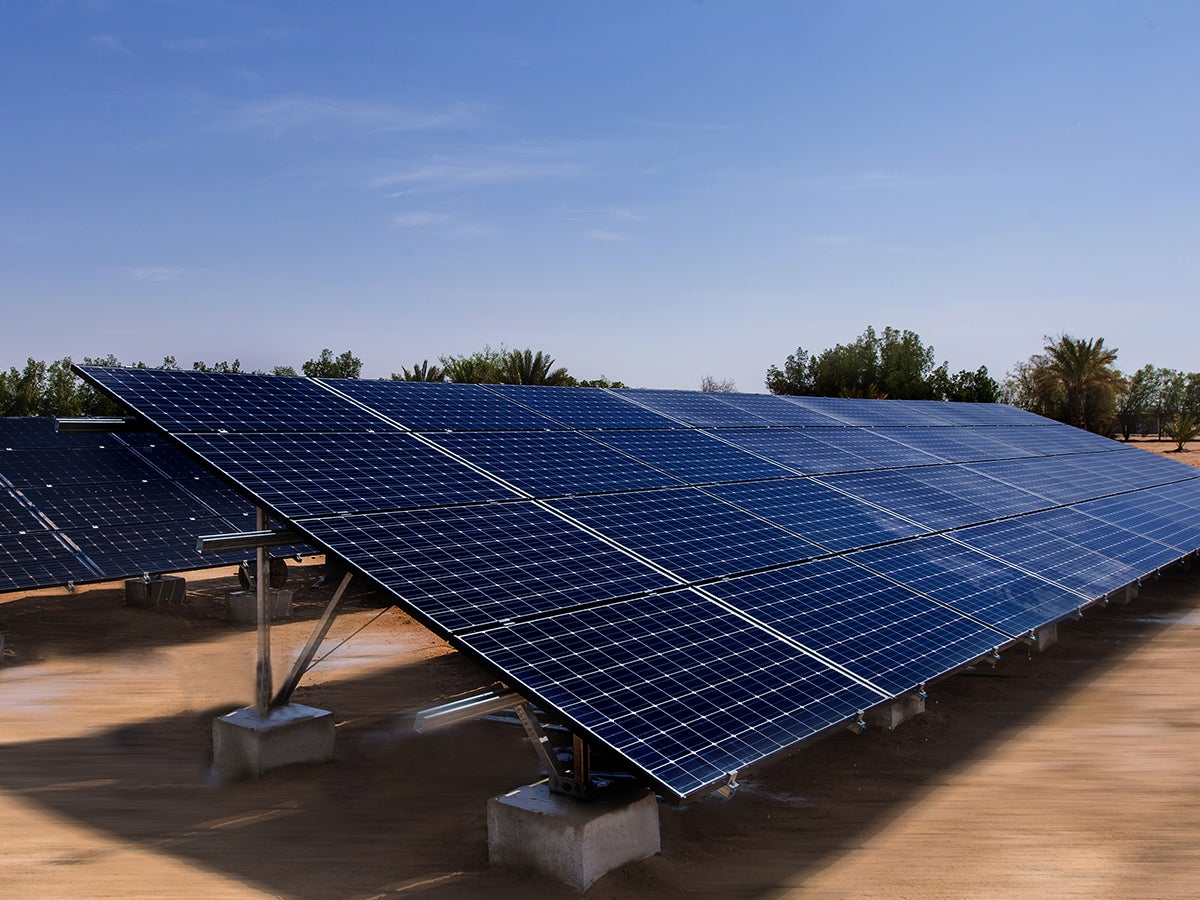
This year, Qatar Environment and Energy Research Institute (QEERI), part of Hamad Bin Khalifa University (HBKU), is celebrating a decade since its establishment in 2011 as the national research institute supporting Qatar in addressing its grand challenges related to energy, water, and environment.
QEERI’s path-breaking multidisciplinary research initiatives have achieved milestones in the fields of energy, water, corrosion, and environment in arid regions - and advanced Qatar’s progress toward its national vision and sustainability goals.
While the anniversary brings into sharp focus the massive environmental and sustainability challenges currently facing the country and the global community, QEERI’s research and technological solutions are an active part of the future roadmap of urgent responses needed. These support Qatar’s climate-resilient, sustainable future, which includes accelerating the use of renewable energy.
Sustainability
As a signatory to the Paris Agreement, Qatar has given importance to research, development, and innovation as a pathway to achieving its strategy and targets toward the Sustainable Development Goals, not just for the country, and its unique climate and geographical location, but also for the region and the globe.
QEERI has established several centers and initiated national and international collaborations that have connected researchers around the world with its institutional mission.
The institute’s Energy Center is contributing to the integration of sustainable energy sources in the national power system and the development of a sustainable energy market in Qatar. With the support of its Economics and Policy Research Department, the center aims to catalyze the transformation of Qatar’s energy system toward optimized efficiency and reduced greenhouse gas emissions.
Dr. Marc Vermeersch, QEERI’s Executive Director, explains how the institute’s various projects contribute to the country’s priority areas: “Qatar has a plentiful supply of solar energy – amongst the highest in the world - and, as a research institute with a national mandate, QEERI’s focus is on enabling the nation to convert this unlimited power source to serve its needs. This may benefit the population, industry, or sectors that are growing rapidly to keep pace with national development, such as agriculture.
“Our focus is in line with the Qatar National Vision 2030 and the economic and environmental development pillars, which place importance on increasing the proportion of renewable energy to ensure harmony between the nation’s intensive economic growth and environmental protection.”
QEERI has been working closely with the agricultural sector, and its initiatives include a pilot project to provide advanced technological solutions for the supply of greener and more sustainable solutions to commercial farms in Qatar.
Optimizing energy resources
QEERI has partnered with a farm that is located southwest of Doha. The project aims to build an integrated solar photovoltaic (PV) system to supply the required electrical energy to the farm for irrigation, lighting, and cooling. A variety of PV modules are tested under different operating conditions at QEERI’s 35,000 m2 Outdoor (solar) Test Facility.
The successful first phase of the pilot project saw the installation of 120 solar panels, which will produce 30 kilowatts of electricity while ensuring that energy requirements are met efficiently and sustainably.
“The project will enable optimum energy solutions for agriculture in Qatar starting with changing how farmers across the country use electricity on their farms. Using solar panels, farm managers can ensure the supply of sufficient energy to meet their needs and minimize the impact on the environment. The outcomes will, in turn, support Qatar’s food security goals,” adds Dr. Veronica Bermudez, senior research director at the Energy Center.
With the farm’s switch to PV complete, the next stage will be optimizing water treatment and usage on the farm, and QEERI’s Water Center is already engaged in exploring solutions, considering Qatar’s severely limited water resources. The farm is therefore a dual innovation testbed for agricultural water management coupled with PV energy provision.
Accelerating the use of solar energy across Qatar
The sustainable farms pilot project is but one example of QEERI’s tangible contributions. Earlier this year, QEERI released the first Qatar Solar Atlas, a tool that quantifies the country’s solar resource and its geographical distribution.
Among the key features of the Atlas is how it evaluates key solar climatic features, and the geographic and time variability of solar power potential, which will be vital for Qatar to evaluate solutions for solar and power production forecasting.
The dynamic Solar Atlas was developed by the Energy Center’s expert pool of researchers, scientists, and engineers, leveraging the capabilities of QEERI’s Outdoor Test Facility, PV Reliability Lab, and network of 15 solar monitoring stations across the country.
This important initiative promises to help Qatar optimize its abundant solar power potential and help the country diversify its energy mix. These are goals that align with QEERI’s leadership of the Solar Consortium, which works together to contribute to a better understanding of conditions in order to optimize solar technologies for desert environments. The work also feeds into QEERI’s advisory role to provide solar resource data for the development of the landmark Siraj-1 PV solar power plant (also known as Al Kharsaah). The plant is one of the largest in the region, and the first of its kind for Qatar, and will help the country to increase its reliance on renewable energy resources.
QEERI’s establishment 10 years ago marked a pivotal step for the country to develop and support scientific research that addresses challenges in priority areas while improving lives. Looking to the future, QEERI’s scientific expertise, state-of-the-art facilities, and vital partnerships will enable the national institute to continue delivering on its unwavering support for Qatar to achieve its sustainability targets for 2030.
With the support of the leadership at HBKU and Qatar Foundation, including QF Research, Development and Innovation, and the Qatar National Research Fund, QEERI is set to build on the past decade of achievements while also engaging with and building expertise among the scientists of the future.
To find out more about QEERI, please visit qeeri.hbku.edu.qa.
Related News
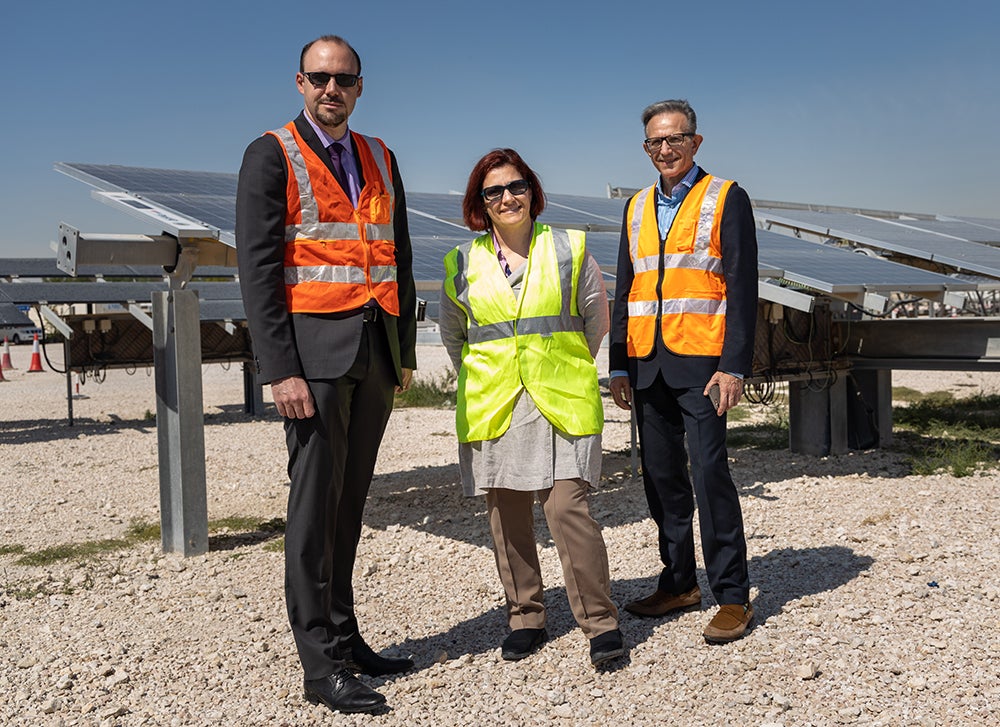
Qatar Environment and Energy Research Institute Providing Key Data for Development of Al Kharsaah 800MWp Photovoltaic Plant
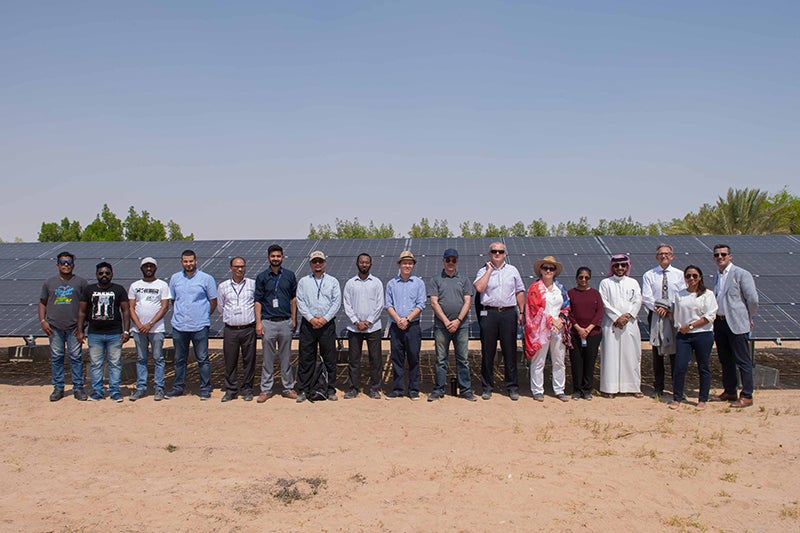
HBKU’s QEERI Launches Pilot Project to Supply Sustainable Energy to Farms in Qatar
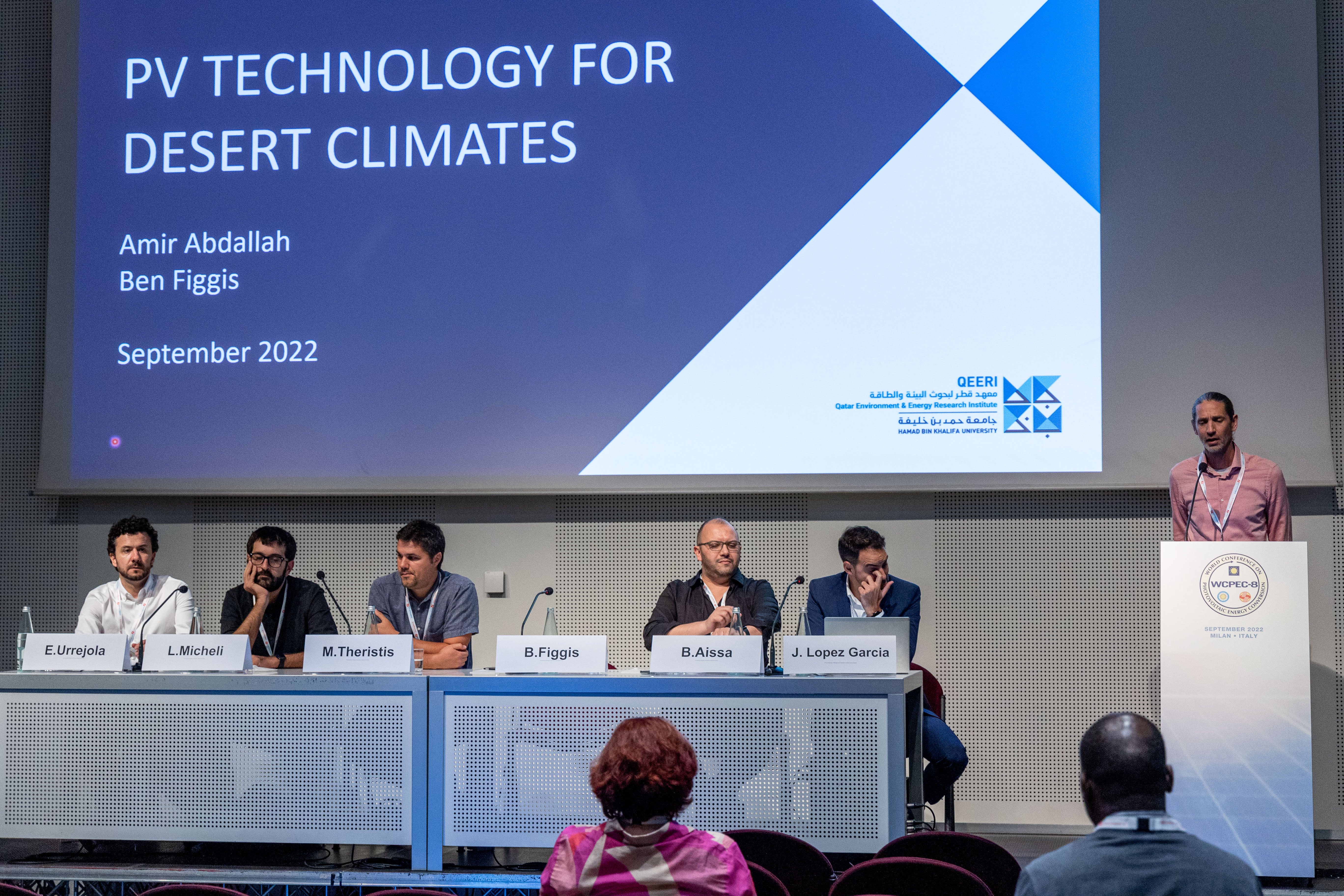
QEERI Presents Solar Energy Innovation at International Photovoltaic Conference
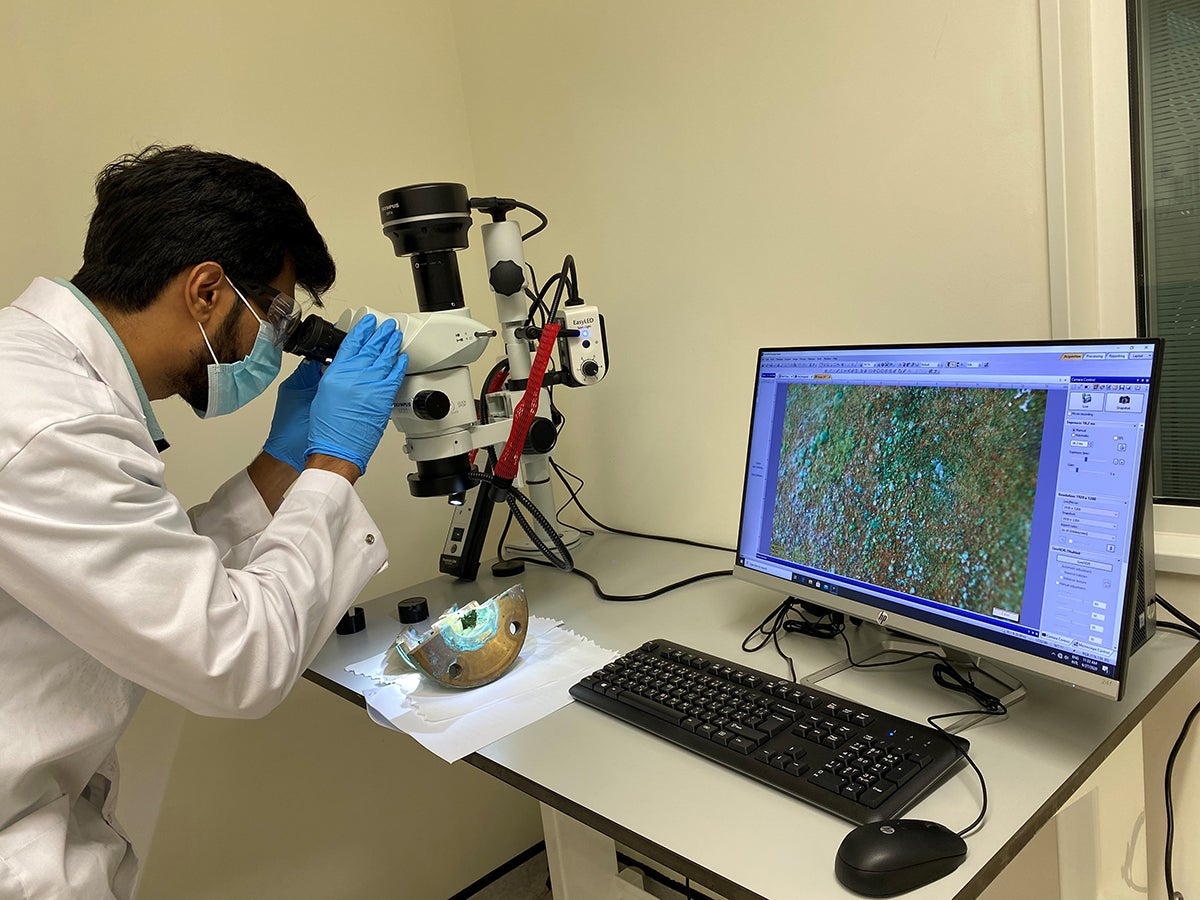
Tackling Corrosion Challenges: A Decade of Qatar Environment and Energy Research Institute
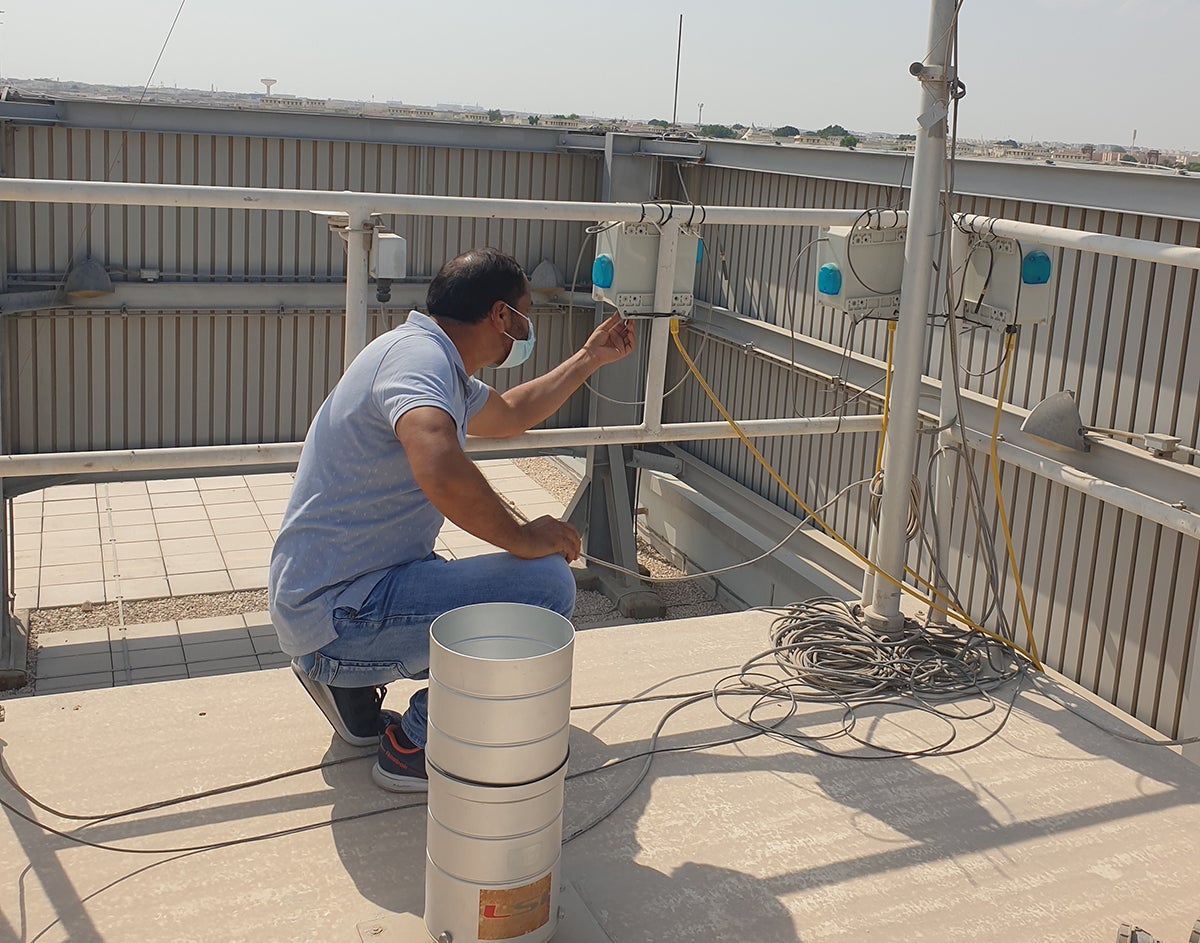
Scientific Research Raises Level of Urban Air Quality Management: A Decade of Qatar Environment and Energy Research Institute
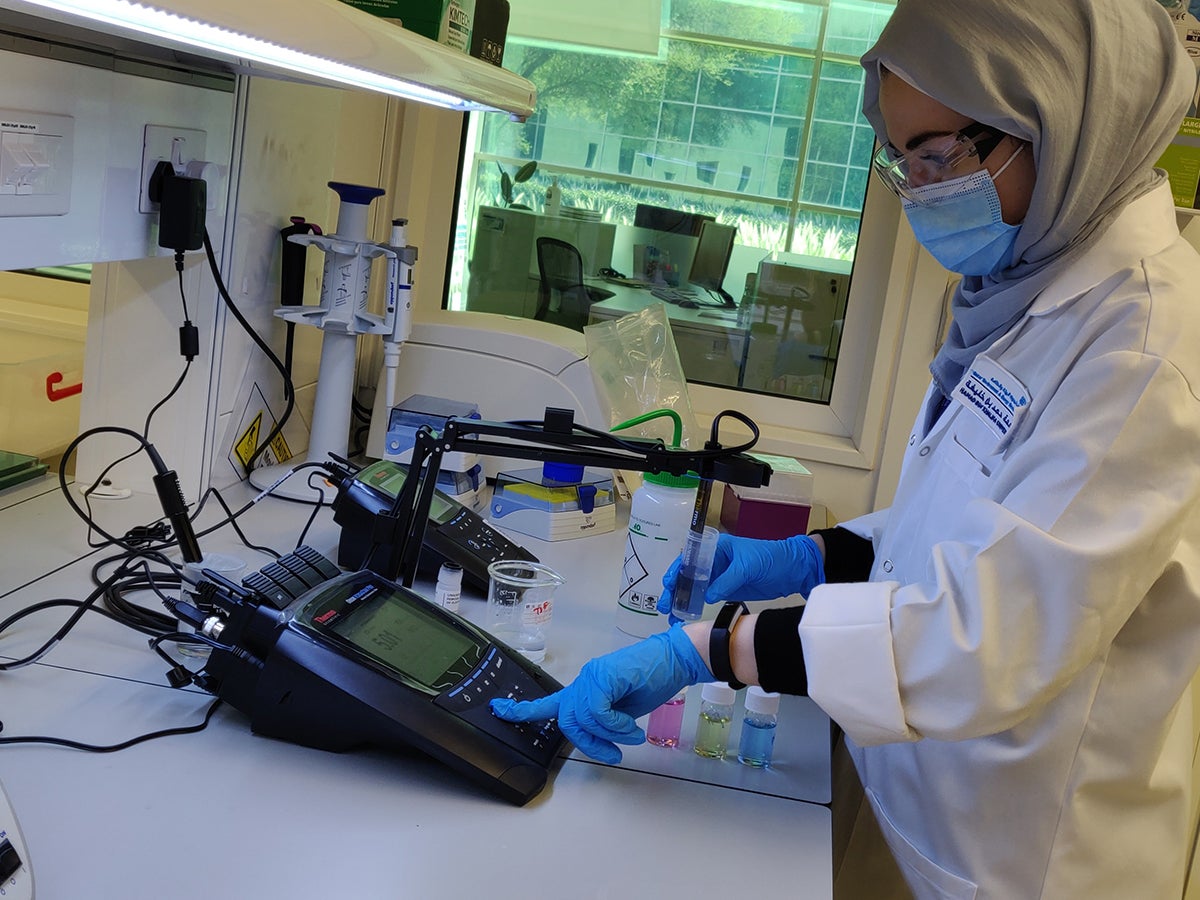
Advancing Qatar’s Circular Water Economy: Qatar Environment and Energy Research Institute Marks 10 Years
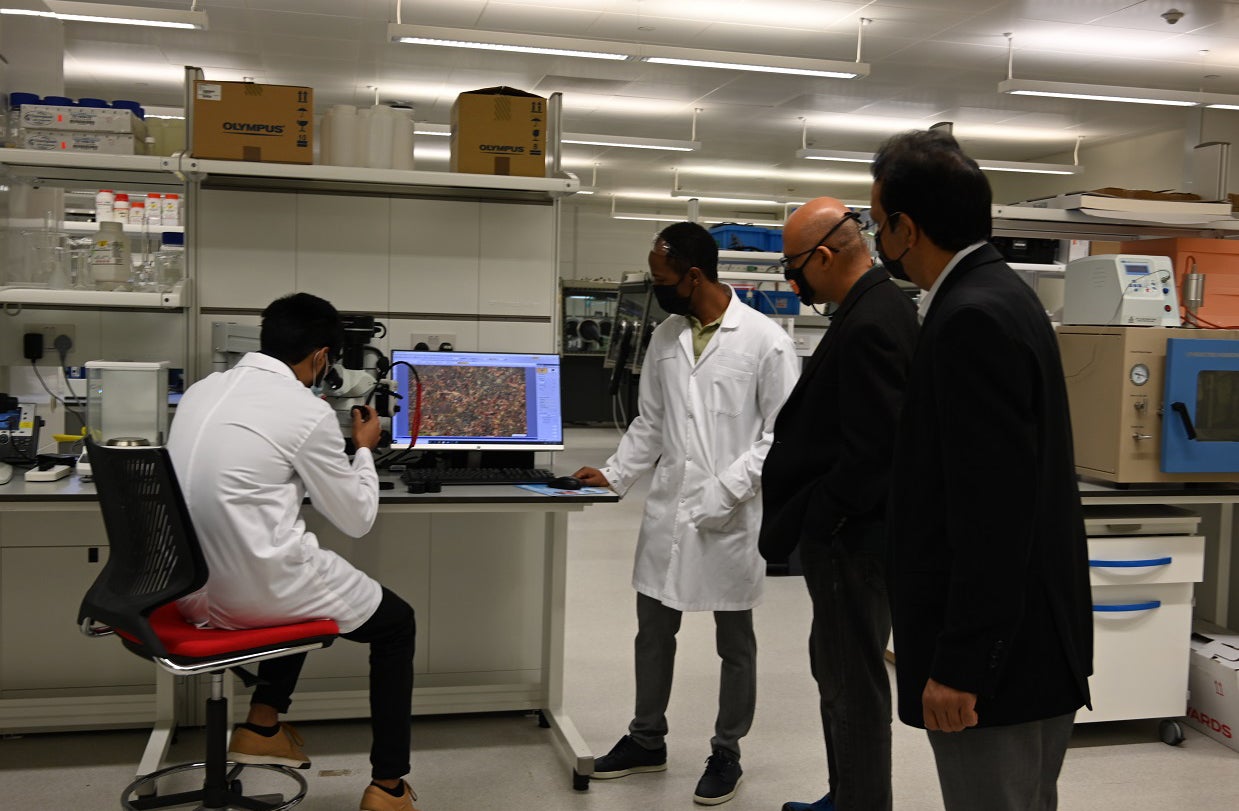
Qatar Environment and Energy Research Institute Achieves ISO Accreditation for Calibration and Testing Laboratories
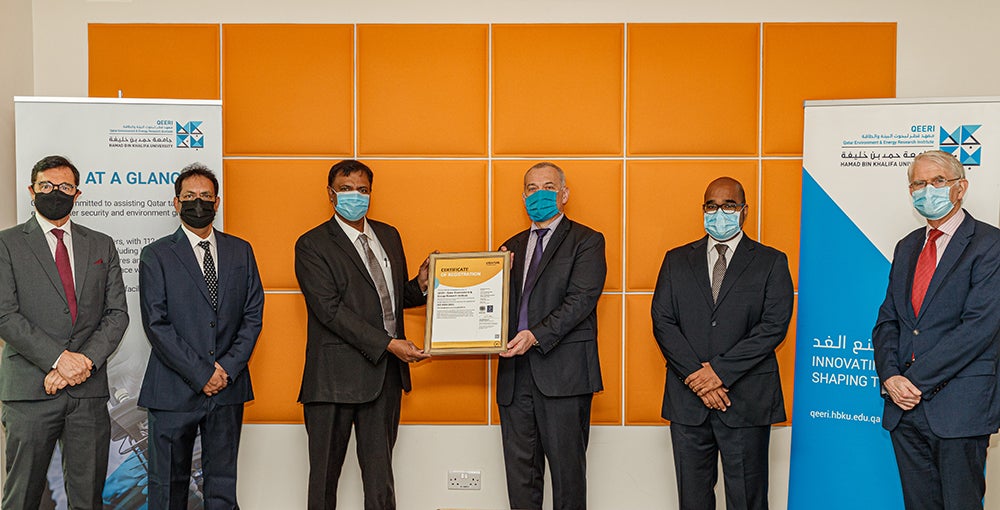
HBKU’s Qatar Environment and Energy Research Institute Awarded ISO Certification for its Integrated Management System

Qatar Environment and Energy Research Institute Providing Key Data for Development of Al Kharsaah 800MWp Photovoltaic Plant

HBKU’s QEERI Launches Pilot Project to Supply Sustainable Energy to Farms in Qatar

QEERI Presents Solar Energy Innovation at International Photovoltaic Conference

Tackling Corrosion Challenges: A Decade of Qatar Environment and Energy Research Institute

Scientific Research Raises Level of Urban Air Quality Management: A Decade of Qatar Environment and Energy Research Institute

Advancing Qatar’s Circular Water Economy: Qatar Environment and Energy Research Institute Marks 10 Years

Qatar Environment and Energy Research Institute Achieves ISO Accreditation for Calibration and Testing Laboratories

HBKU’s Qatar Environment and Energy Research Institute Awarded ISO Certification for its Integrated Management System

Qatar Environment and Energy Research Institute Providing Key Data for Development of Al Kharsaah 800MWp Photovoltaic Plant

HBKU’s QEERI Launches Pilot Project to Supply Sustainable Energy to Farms in Qatar

QEERI Presents Solar Energy Innovation at International Photovoltaic Conference

Tackling Corrosion Challenges: A Decade of Qatar Environment and Energy Research Institute

Scientific Research Raises Level of Urban Air Quality Management: A Decade of Qatar Environment and Energy Research Institute

Advancing Qatar’s Circular Water Economy: Qatar Environment and Energy Research Institute Marks 10 Years

Qatar Environment and Energy Research Institute Achieves ISO Accreditation for Calibration and Testing Laboratories

HBKU’s Qatar Environment and Energy Research Institute Awarded ISO Certification for its Integrated Management System

Qatar Environment and Energy Research Institute Providing Key Data for Development of Al Kharsaah 800MWp Photovoltaic Plant

HBKU’s QEERI Launches Pilot Project to Supply Sustainable Energy to Farms in Qatar

QEERI Presents Solar Energy Innovation at International Photovoltaic Conference

Tackling Corrosion Challenges: A Decade of Qatar Environment and Energy Research Institute

Scientific Research Raises Level of Urban Air Quality Management: A Decade of Qatar Environment and Energy Research Institute

Advancing Qatar’s Circular Water Economy: Qatar Environment and Energy Research Institute Marks 10 Years

Qatar Environment and Energy Research Institute Achieves ISO Accreditation for Calibration and Testing Laboratories

HBKU’s Qatar Environment and Energy Research Institute Awarded ISO Certification for its Integrated Management System

Qatar Environment and Energy Research Institute Providing Key Data for Development of Al Kharsaah 800MWp Photovoltaic Plant

HBKU’s QEERI Launches Pilot Project to Supply Sustainable Energy to Farms in Qatar

QEERI Presents Solar Energy Innovation at International Photovoltaic Conference

Tackling Corrosion Challenges: A Decade of Qatar Environment and Energy Research Institute

Scientific Research Raises Level of Urban Air Quality Management: A Decade of Qatar Environment and Energy Research Institute

Advancing Qatar’s Circular Water Economy: Qatar Environment and Energy Research Institute Marks 10 Years

Qatar Environment and Energy Research Institute Achieves ISO Accreditation for Calibration and Testing Laboratories

HBKU’s Qatar Environment and Energy Research Institute Awarded ISO Certification for its Integrated Management System

Qatar Environment and Energy Research Institute Providing Key Data for Development of Al Kharsaah 800MWp Photovoltaic Plant

HBKU’s QEERI Launches Pilot Project to Supply Sustainable Energy to Farms in Qatar

QEERI Presents Solar Energy Innovation at International Photovoltaic Conference

Tackling Corrosion Challenges: A Decade of Qatar Environment and Energy Research Institute

Scientific Research Raises Level of Urban Air Quality Management: A Decade of Qatar Environment and Energy Research Institute

Advancing Qatar’s Circular Water Economy: Qatar Environment and Energy Research Institute Marks 10 Years

Qatar Environment and Energy Research Institute Achieves ISO Accreditation for Calibration and Testing Laboratories

HBKU’s Qatar Environment and Energy Research Institute Awarded ISO Certification for its Integrated Management System

Qatar Environment and Energy Research Institute Providing Key Data for Development of Al Kharsaah 800MWp Photovoltaic Plant

HBKU’s QEERI Launches Pilot Project to Supply Sustainable Energy to Farms in Qatar

QEERI Presents Solar Energy Innovation at International Photovoltaic Conference

Tackling Corrosion Challenges: A Decade of Qatar Environment and Energy Research Institute

Scientific Research Raises Level of Urban Air Quality Management: A Decade of Qatar Environment and Energy Research Institute

Advancing Qatar’s Circular Water Economy: Qatar Environment and Energy Research Institute Marks 10 Years

Qatar Environment and Energy Research Institute Achieves ISO Accreditation for Calibration and Testing Laboratories

HBKU’s Qatar Environment and Energy Research Institute Awarded ISO Certification for its Integrated Management System

Qatar Environment and Energy Research Institute Providing Key Data for Development of Al Kharsaah 800MWp Photovoltaic Plant

HBKU’s QEERI Launches Pilot Project to Supply Sustainable Energy to Farms in Qatar

QEERI Presents Solar Energy Innovation at International Photovoltaic Conference

Tackling Corrosion Challenges: A Decade of Qatar Environment and Energy Research Institute

Scientific Research Raises Level of Urban Air Quality Management: A Decade of Qatar Environment and Energy Research Institute

Advancing Qatar’s Circular Water Economy: Qatar Environment and Energy Research Institute Marks 10 Years

Qatar Environment and Energy Research Institute Achieves ISO Accreditation for Calibration and Testing Laboratories

HBKU’s Qatar Environment and Energy Research Institute Awarded ISO Certification for its Integrated Management System

Qatar Environment and Energy Research Institute Providing Key Data for Development of Al Kharsaah 800MWp Photovoltaic Plant

HBKU’s QEERI Launches Pilot Project to Supply Sustainable Energy to Farms in Qatar

QEERI Presents Solar Energy Innovation at International Photovoltaic Conference

Tackling Corrosion Challenges: A Decade of Qatar Environment and Energy Research Institute

Scientific Research Raises Level of Urban Air Quality Management: A Decade of Qatar Environment and Energy Research Institute

Advancing Qatar’s Circular Water Economy: Qatar Environment and Energy Research Institute Marks 10 Years

Qatar Environment and Energy Research Institute Achieves ISO Accreditation for Calibration and Testing Laboratories

HBKU’s Qatar Environment and Energy Research Institute Awarded ISO Certification for its Integrated Management System

Qatar Environment and Energy Research Institute Providing Key Data for Development of Al Kharsaah 800MWp Photovoltaic Plant

HBKU’s QEERI Launches Pilot Project to Supply Sustainable Energy to Farms in Qatar

QEERI Presents Solar Energy Innovation at International Photovoltaic Conference

Tackling Corrosion Challenges: A Decade of Qatar Environment and Energy Research Institute

Scientific Research Raises Level of Urban Air Quality Management: A Decade of Qatar Environment and Energy Research Institute

Advancing Qatar’s Circular Water Economy: Qatar Environment and Energy Research Institute Marks 10 Years

Qatar Environment and Energy Research Institute Achieves ISO Accreditation for Calibration and Testing Laboratories

HBKU’s Qatar Environment and Energy Research Institute Awarded ISO Certification for its Integrated Management System

Qatar Environment and Energy Research Institute Providing Key Data for Development of Al Kharsaah 800MWp Photovoltaic Plant

HBKU’s QEERI Launches Pilot Project to Supply Sustainable Energy to Farms in Qatar

QEERI Presents Solar Energy Innovation at International Photovoltaic Conference

Tackling Corrosion Challenges: A Decade of Qatar Environment and Energy Research Institute

Scientific Research Raises Level of Urban Air Quality Management: A Decade of Qatar Environment and Energy Research Institute

Advancing Qatar’s Circular Water Economy: Qatar Environment and Energy Research Institute Marks 10 Years

Qatar Environment and Energy Research Institute Achieves ISO Accreditation for Calibration and Testing Laboratories

HBKU’s Qatar Environment and Energy Research Institute Awarded ISO Certification for its Integrated Management System

Qatar Environment and Energy Research Institute Providing Key Data for Development of Al Kharsaah 800MWp Photovoltaic Plant

HBKU’s QEERI Launches Pilot Project to Supply Sustainable Energy to Farms in Qatar

QEERI Presents Solar Energy Innovation at International Photovoltaic Conference

Tackling Corrosion Challenges: A Decade of Qatar Environment and Energy Research Institute

Scientific Research Raises Level of Urban Air Quality Management: A Decade of Qatar Environment and Energy Research Institute

Advancing Qatar’s Circular Water Economy: Qatar Environment and Energy Research Institute Marks 10 Years

Qatar Environment and Energy Research Institute Achieves ISO Accreditation for Calibration and Testing Laboratories

HBKU’s Qatar Environment and Energy Research Institute Awarded ISO Certification for its Integrated Management System

Qatar Environment and Energy Research Institute Providing Key Data for Development of Al Kharsaah 800MWp Photovoltaic Plant

HBKU’s QEERI Launches Pilot Project to Supply Sustainable Energy to Farms in Qatar

QEERI Presents Solar Energy Innovation at International Photovoltaic Conference

Tackling Corrosion Challenges: A Decade of Qatar Environment and Energy Research Institute

Scientific Research Raises Level of Urban Air Quality Management: A Decade of Qatar Environment and Energy Research Institute

Advancing Qatar’s Circular Water Economy: Qatar Environment and Energy Research Institute Marks 10 Years

Qatar Environment and Energy Research Institute Achieves ISO Accreditation for Calibration and Testing Laboratories

HBKU’s Qatar Environment and Energy Research Institute Awarded ISO Certification for its Integrated Management System

Qatar Environment and Energy Research Institute Providing Key Data for Development of Al Kharsaah 800MWp Photovoltaic Plant

HBKU’s QEERI Launches Pilot Project to Supply Sustainable Energy to Farms in Qatar

QEERI Presents Solar Energy Innovation at International Photovoltaic Conference

Tackling Corrosion Challenges: A Decade of Qatar Environment and Energy Research Institute

Scientific Research Raises Level of Urban Air Quality Management: A Decade of Qatar Environment and Energy Research Institute

Advancing Qatar’s Circular Water Economy: Qatar Environment and Energy Research Institute Marks 10 Years

Qatar Environment and Energy Research Institute Achieves ISO Accreditation for Calibration and Testing Laboratories

HBKU’s Qatar Environment and Energy Research Institute Awarded ISO Certification for its Integrated Management System

Qatar Environment and Energy Research Institute Providing Key Data for Development of Al Kharsaah 800MWp Photovoltaic Plant

HBKU’s QEERI Launches Pilot Project to Supply Sustainable Energy to Farms in Qatar

QEERI Presents Solar Energy Innovation at International Photovoltaic Conference

Tackling Corrosion Challenges: A Decade of Qatar Environment and Energy Research Institute

Scientific Research Raises Level of Urban Air Quality Management: A Decade of Qatar Environment and Energy Research Institute

Advancing Qatar’s Circular Water Economy: Qatar Environment and Energy Research Institute Marks 10 Years

Qatar Environment and Energy Research Institute Achieves ISO Accreditation for Calibration and Testing Laboratories

HBKU’s Qatar Environment and Energy Research Institute Awarded ISO Certification for its Integrated Management System

Qatar Environment and Energy Research Institute Providing Key Data for Development of Al Kharsaah 800MWp Photovoltaic Plant

HBKU’s QEERI Launches Pilot Project to Supply Sustainable Energy to Farms in Qatar

QEERI Presents Solar Energy Innovation at International Photovoltaic Conference

Tackling Corrosion Challenges: A Decade of Qatar Environment and Energy Research Institute

Scientific Research Raises Level of Urban Air Quality Management: A Decade of Qatar Environment and Energy Research Institute

Advancing Qatar’s Circular Water Economy: Qatar Environment and Energy Research Institute Marks 10 Years

Qatar Environment and Energy Research Institute Achieves ISO Accreditation for Calibration and Testing Laboratories

HBKU’s Qatar Environment and Energy Research Institute Awarded ISO Certification for its Integrated Management System

Qatar Environment and Energy Research Institute Providing Key Data for Development of Al Kharsaah 800MWp Photovoltaic Plant

HBKU’s QEERI Launches Pilot Project to Supply Sustainable Energy to Farms in Qatar

QEERI Presents Solar Energy Innovation at International Photovoltaic Conference

Tackling Corrosion Challenges: A Decade of Qatar Environment and Energy Research Institute

Scientific Research Raises Level of Urban Air Quality Management: A Decade of Qatar Environment and Energy Research Institute

Advancing Qatar’s Circular Water Economy: Qatar Environment and Energy Research Institute Marks 10 Years

Qatar Environment and Energy Research Institute Achieves ISO Accreditation for Calibration and Testing Laboratories

HBKU’s Qatar Environment and Energy Research Institute Awarded ISO Certification for its Integrated Management System

Qatar Environment and Energy Research Institute Providing Key Data for Development of Al Kharsaah 800MWp Photovoltaic Plant

HBKU’s QEERI Launches Pilot Project to Supply Sustainable Energy to Farms in Qatar

QEERI Presents Solar Energy Innovation at International Photovoltaic Conference

Tackling Corrosion Challenges: A Decade of Qatar Environment and Energy Research Institute

Scientific Research Raises Level of Urban Air Quality Management: A Decade of Qatar Environment and Energy Research Institute

Advancing Qatar’s Circular Water Economy: Qatar Environment and Energy Research Institute Marks 10 Years

Qatar Environment and Energy Research Institute Achieves ISO Accreditation for Calibration and Testing Laboratories

HBKU’s Qatar Environment and Energy Research Institute Awarded ISO Certification for its Integrated Management System

Qatar Environment and Energy Research Institute Providing Key Data for Development of Al Kharsaah 800MWp Photovoltaic Plant

HBKU’s QEERI Launches Pilot Project to Supply Sustainable Energy to Farms in Qatar

QEERI Presents Solar Energy Innovation at International Photovoltaic Conference

Tackling Corrosion Challenges: A Decade of Qatar Environment and Energy Research Institute

Scientific Research Raises Level of Urban Air Quality Management: A Decade of Qatar Environment and Energy Research Institute

Advancing Qatar’s Circular Water Economy: Qatar Environment and Energy Research Institute Marks 10 Years

Qatar Environment and Energy Research Institute Achieves ISO Accreditation for Calibration and Testing Laboratories

HBKU’s Qatar Environment and Energy Research Institute Awarded ISO Certification for its Integrated Management System

Qatar Environment and Energy Research Institute Providing Key Data for Development of Al Kharsaah 800MWp Photovoltaic Plant

HBKU’s QEERI Launches Pilot Project to Supply Sustainable Energy to Farms in Qatar

QEERI Presents Solar Energy Innovation at International Photovoltaic Conference

Tackling Corrosion Challenges: A Decade of Qatar Environment and Energy Research Institute

Scientific Research Raises Level of Urban Air Quality Management: A Decade of Qatar Environment and Energy Research Institute

Advancing Qatar’s Circular Water Economy: Qatar Environment and Energy Research Institute Marks 10 Years

Qatar Environment and Energy Research Institute Achieves ISO Accreditation for Calibration and Testing Laboratories

HBKU’s Qatar Environment and Energy Research Institute Awarded ISO Certification for its Integrated Management System

Qatar Environment and Energy Research Institute Providing Key Data for Development of Al Kharsaah 800MWp Photovoltaic Plant

HBKU’s QEERI Launches Pilot Project to Supply Sustainable Energy to Farms in Qatar

QEERI Presents Solar Energy Innovation at International Photovoltaic Conference

Tackling Corrosion Challenges: A Decade of Qatar Environment and Energy Research Institute

Scientific Research Raises Level of Urban Air Quality Management: A Decade of Qatar Environment and Energy Research Institute

Advancing Qatar’s Circular Water Economy: Qatar Environment and Energy Research Institute Marks 10 Years

Qatar Environment and Energy Research Institute Achieves ISO Accreditation for Calibration and Testing Laboratories

HBKU’s Qatar Environment and Energy Research Institute Awarded ISO Certification for its Integrated Management System

Qatar Environment and Energy Research Institute Providing Key Data for Development of Al Kharsaah 800MWp Photovoltaic Plant

HBKU’s QEERI Launches Pilot Project to Supply Sustainable Energy to Farms in Qatar

QEERI Presents Solar Energy Innovation at International Photovoltaic Conference

Tackling Corrosion Challenges: A Decade of Qatar Environment and Energy Research Institute

Scientific Research Raises Level of Urban Air Quality Management: A Decade of Qatar Environment and Energy Research Institute

Advancing Qatar’s Circular Water Economy: Qatar Environment and Energy Research Institute Marks 10 Years

Qatar Environment and Energy Research Institute Achieves ISO Accreditation for Calibration and Testing Laboratories

HBKU’s Qatar Environment and Energy Research Institute Awarded ISO Certification for its Integrated Management System

Qatar Environment and Energy Research Institute Providing Key Data for Development of Al Kharsaah 800MWp Photovoltaic Plant

HBKU’s QEERI Launches Pilot Project to Supply Sustainable Energy to Farms in Qatar

QEERI Presents Solar Energy Innovation at International Photovoltaic Conference

Tackling Corrosion Challenges: A Decade of Qatar Environment and Energy Research Institute

Scientific Research Raises Level of Urban Air Quality Management: A Decade of Qatar Environment and Energy Research Institute

Advancing Qatar’s Circular Water Economy: Qatar Environment and Energy Research Institute Marks 10 Years

Qatar Environment and Energy Research Institute Achieves ISO Accreditation for Calibration and Testing Laboratories

HBKU’s Qatar Environment and Energy Research Institute Awarded ISO Certification for its Integrated Management System

Qatar Environment and Energy Research Institute Providing Key Data for Development of Al Kharsaah 800MWp Photovoltaic Plant

HBKU’s QEERI Launches Pilot Project to Supply Sustainable Energy to Farms in Qatar

QEERI Presents Solar Energy Innovation at International Photovoltaic Conference

Tackling Corrosion Challenges: A Decade of Qatar Environment and Energy Research Institute

Scientific Research Raises Level of Urban Air Quality Management: A Decade of Qatar Environment and Energy Research Institute

Advancing Qatar’s Circular Water Economy: Qatar Environment and Energy Research Institute Marks 10 Years

Qatar Environment and Energy Research Institute Achieves ISO Accreditation for Calibration and Testing Laboratories

HBKU’s Qatar Environment and Energy Research Institute Awarded ISO Certification for its Integrated Management System

Qatar Environment and Energy Research Institute Providing Key Data for Development of Al Kharsaah 800MWp Photovoltaic Plant

HBKU’s QEERI Launches Pilot Project to Supply Sustainable Energy to Farms in Qatar

QEERI Presents Solar Energy Innovation at International Photovoltaic Conference

Tackling Corrosion Challenges: A Decade of Qatar Environment and Energy Research Institute

Scientific Research Raises Level of Urban Air Quality Management: A Decade of Qatar Environment and Energy Research Institute

Advancing Qatar’s Circular Water Economy: Qatar Environment and Energy Research Institute Marks 10 Years

Qatar Environment and Energy Research Institute Achieves ISO Accreditation for Calibration and Testing Laboratories

HBKU’s Qatar Environment and Energy Research Institute Awarded ISO Certification for its Integrated Management System

Qatar Environment and Energy Research Institute Providing Key Data for Development of Al Kharsaah 800MWp Photovoltaic Plant

HBKU’s QEERI Launches Pilot Project to Supply Sustainable Energy to Farms in Qatar

QEERI Presents Solar Energy Innovation at International Photovoltaic Conference

Tackling Corrosion Challenges: A Decade of Qatar Environment and Energy Research Institute

Scientific Research Raises Level of Urban Air Quality Management: A Decade of Qatar Environment and Energy Research Institute

Advancing Qatar’s Circular Water Economy: Qatar Environment and Energy Research Institute Marks 10 Years

Qatar Environment and Energy Research Institute Achieves ISO Accreditation for Calibration and Testing Laboratories

HBKU’s Qatar Environment and Energy Research Institute Awarded ISO Certification for its Integrated Management System

Qatar Environment and Energy Research Institute Providing Key Data for Development of Al Kharsaah 800MWp Photovoltaic Plant

HBKU’s QEERI Launches Pilot Project to Supply Sustainable Energy to Farms in Qatar

QEERI Presents Solar Energy Innovation at International Photovoltaic Conference

Tackling Corrosion Challenges: A Decade of Qatar Environment and Energy Research Institute

Scientific Research Raises Level of Urban Air Quality Management: A Decade of Qatar Environment and Energy Research Institute

Advancing Qatar’s Circular Water Economy: Qatar Environment and Energy Research Institute Marks 10 Years

Qatar Environment and Energy Research Institute Achieves ISO Accreditation for Calibration and Testing Laboratories

HBKU’s Qatar Environment and Energy Research Institute Awarded ISO Certification for its Integrated Management System

Qatar Environment and Energy Research Institute Providing Key Data for Development of Al Kharsaah 800MWp Photovoltaic Plant

HBKU’s QEERI Launches Pilot Project to Supply Sustainable Energy to Farms in Qatar

QEERI Presents Solar Energy Innovation at International Photovoltaic Conference

Tackling Corrosion Challenges: A Decade of Qatar Environment and Energy Research Institute

Scientific Research Raises Level of Urban Air Quality Management: A Decade of Qatar Environment and Energy Research Institute

Advancing Qatar’s Circular Water Economy: Qatar Environment and Energy Research Institute Marks 10 Years

Qatar Environment and Energy Research Institute Achieves ISO Accreditation for Calibration and Testing Laboratories

HBKU’s Qatar Environment and Energy Research Institute Awarded ISO Certification for its Integrated Management System

Qatar Environment and Energy Research Institute Providing Key Data for Development of Al Kharsaah 800MWp Photovoltaic Plant

HBKU’s QEERI Launches Pilot Project to Supply Sustainable Energy to Farms in Qatar

QEERI Presents Solar Energy Innovation at International Photovoltaic Conference

Tackling Corrosion Challenges: A Decade of Qatar Environment and Energy Research Institute

Scientific Research Raises Level of Urban Air Quality Management: A Decade of Qatar Environment and Energy Research Institute

Advancing Qatar’s Circular Water Economy: Qatar Environment and Energy Research Institute Marks 10 Years

Qatar Environment and Energy Research Institute Achieves ISO Accreditation for Calibration and Testing Laboratories

HBKU’s Qatar Environment and Energy Research Institute Awarded ISO Certification for its Integrated Management System

Qatar Environment and Energy Research Institute Providing Key Data for Development of Al Kharsaah 800MWp Photovoltaic Plant

HBKU’s QEERI Launches Pilot Project to Supply Sustainable Energy to Farms in Qatar

QEERI Presents Solar Energy Innovation at International Photovoltaic Conference

Tackling Corrosion Challenges: A Decade of Qatar Environment and Energy Research Institute

Scientific Research Raises Level of Urban Air Quality Management: A Decade of Qatar Environment and Energy Research Institute

Advancing Qatar’s Circular Water Economy: Qatar Environment and Energy Research Institute Marks 10 Years

Qatar Environment and Energy Research Institute Achieves ISO Accreditation for Calibration and Testing Laboratories

HBKU’s Qatar Environment and Energy Research Institute Awarded ISO Certification for its Integrated Management System

Qatar Environment and Energy Research Institute Providing Key Data for Development of Al Kharsaah 800MWp Photovoltaic Plant






